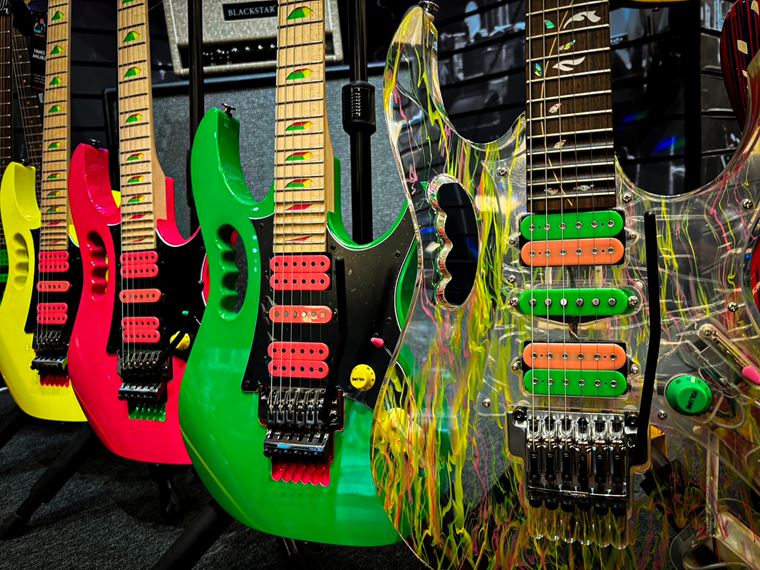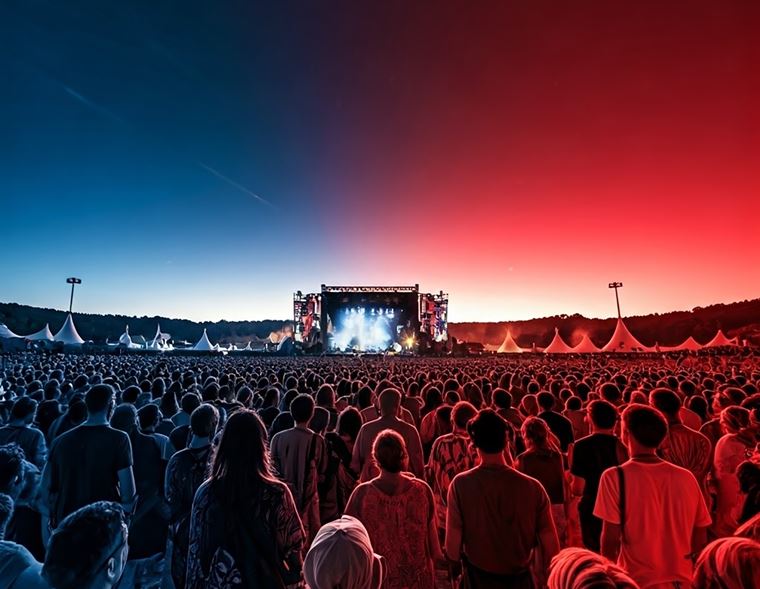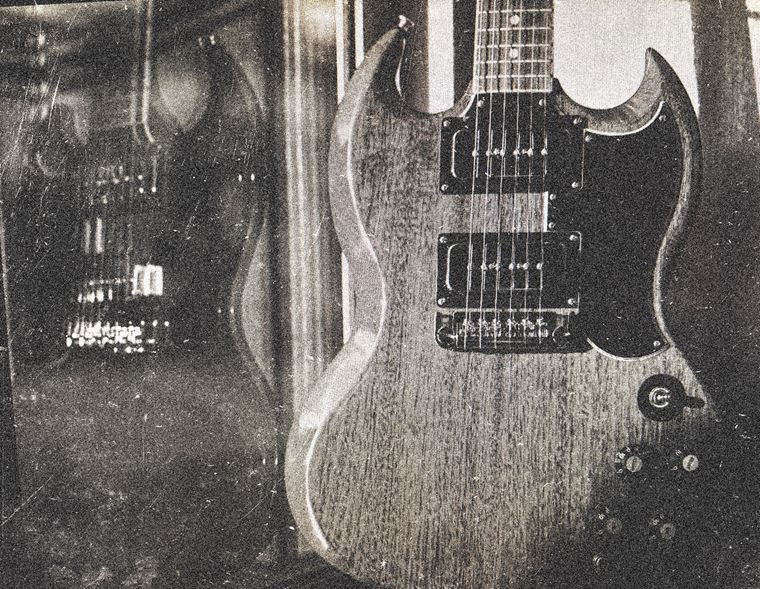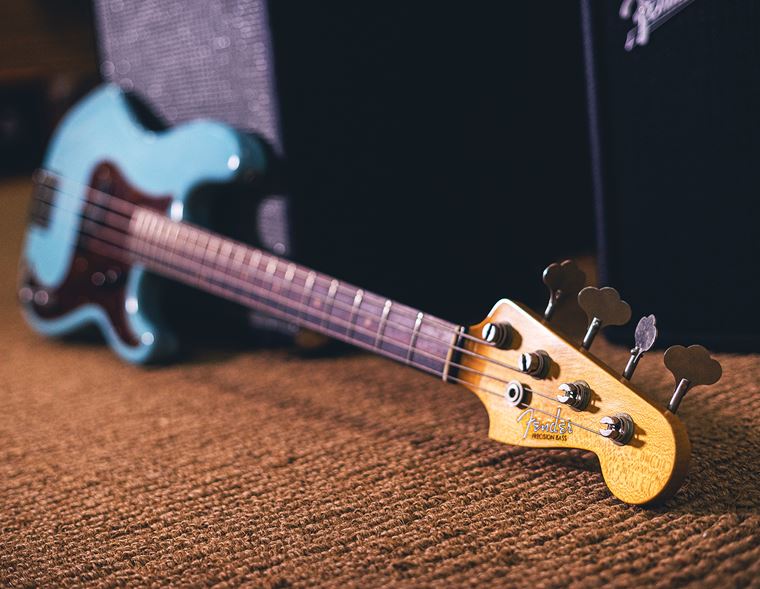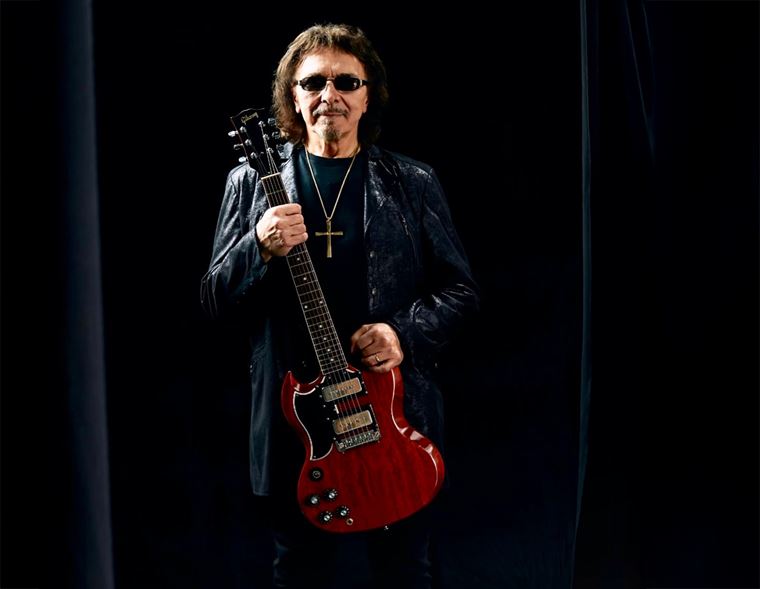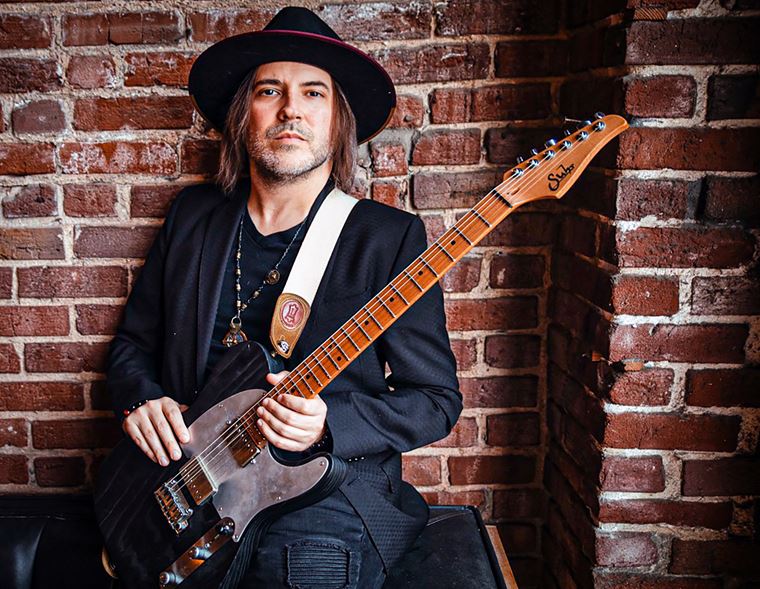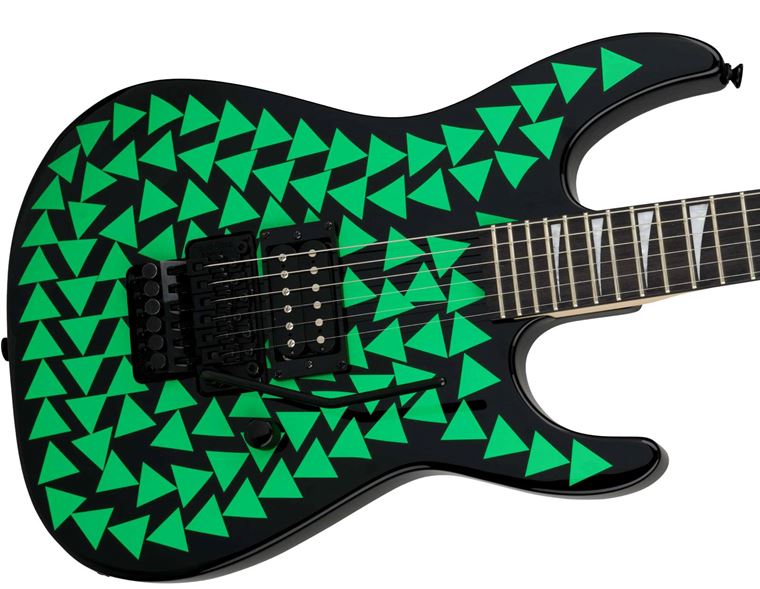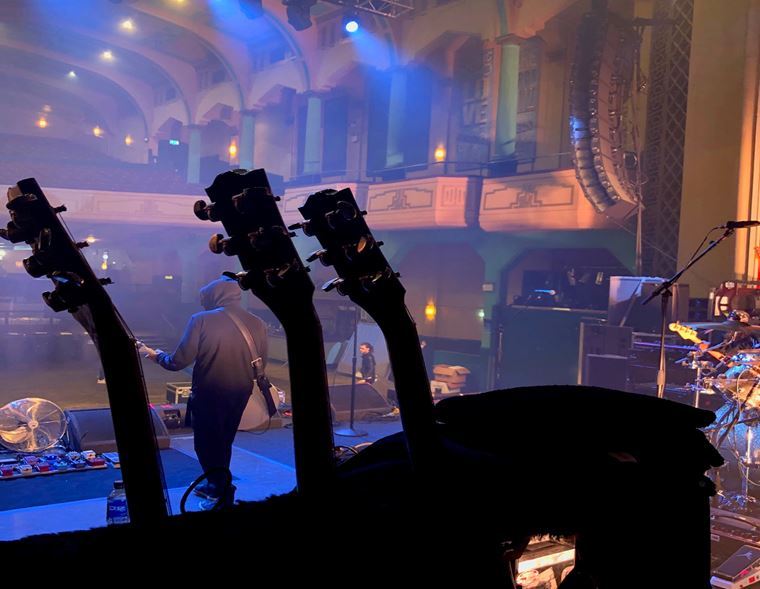15 Best Metal Bands Ever
Heavy metal, and its adjacent genres, are in many ways the very lifeblood of guitar music. No other genre relies so heavily on layers of guitars, and no other genre is as demanding on the instrument. It’s a rare guitarist who doesn’t get along with at least a few heavier bands, especially given how numerous they are, not to mention diverse.
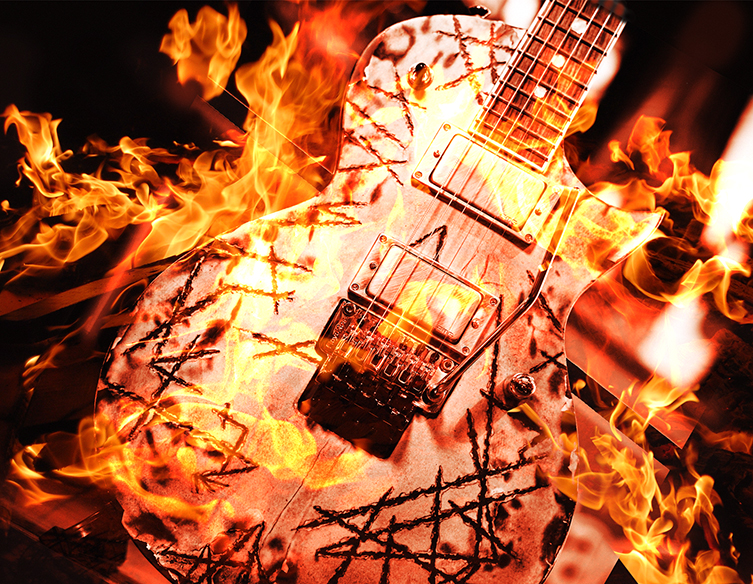
From bands who look to the hard rock of the 1970s for their cues, to those who have composed symphonic nightmarish epics, the world of metal is a varied and colourful one. Today, we pick out the 15 metal bands whom we feel are the biggest, best and most influential of all time. How many do you agree with?
Black Sabbath
Where would heavy music be without Black Sabbath? Ozzy’s mad crew of dark lords are one of the most influential bands in existence, and in heavy music circles, perhaps the most significant band of them all. Black Sabbath were the first band to slow down the riffs, detune the guitars and pointedly sing about dark, occult themes.
At the time, Sabbath seemed like a genuinely dangerous, otherworldly proposition, with their crucifixes, doomy sonics and intense vocals. This was in the days before reality TV shows made Ozzy a household name and simultaneously reduced the mythmaking, of course! Paranoid, their biggest hit, is about the 23rd best Black Sabbath song at best, so if that’s all you know, you’re in for a treat.
Iron Maiden
A band so iconic sounding that other bands don’t even bother trying to rip them off, Iron Maiden are an entire microcosmic universe of metal. From their iconic artwork inwards, Bruce Dickinson and the boys embody a rich world of anthemic metal that’s chock full of mythology, history, horror and galloping riffs; a world that is as intense and appealing now as it was in the early 80s.
Iron Maiden are one of those bands who just flat-out own their sound. Even their smallest songs dwarf the biggest tunes of their competitors, as you’d expect from a lineup that includes three full-on lead guitarists and a vocalist who is frequently referred to as the ‘human air raid siren’. Do a lot of their songs sound the same? Sure, but the point is, nobody else sounds like them.
Staying on top for over 40 years is a supremely difficult task to face, but Iron Maiden make it look easy, all whilst leaping around massive stages filled with sets, monsters and pyro. Looking for a jumping in point as a listener? We’d recommend either Powerslave, which features the frankly hair-raising Aces High, or Seventh Son of a Seventh Son, a dark concept album with more hooks than a fishing boat. Legendary.
Metallica
Metallica are the biggest metal band on the planet. The reason for this is because they are also one of the very best. They have the anthems, they have the anger and, musically, they almost re-wrote how bands could approach heaviness, with an angular, European sensibility of chromaticism and note choice. Who can outclass James Hetfield for riff writing and timing? Nobody, frankly. Metallica’s songs have melodies, they have mosh moments, and they have deeply satisfying grooves, something that is intrinsic to the genre but rarely commented upon.
Metallica’s first 5 albums are rightfully held up as an unstoppable body of work, and even though their latter period output has been hit-or-miss, they’ve never taken an easy route, preferring to explore collaborations (Lulu with Lou Reed), symphony orchestras (S&M I and II) and genre experiments in Alternative and Contemporary Metal (Load and St Anger respectively).
But yeah, those first five albums are kinda still what it’s all about.
Slayer
In the 80s, the music media put together the term ‘Big Four’ for thrash metal’s biggest and most hard-hitting bands, in order to somewhat take ownership of a scene that was already doing its thing without the requirement of a neat label. Anyway, the Big Four were Metallica, Megadeth, Anthrax and these guys, who were perhaps the most notorious of all.
Now, it has been a hot minute since the late 80s, but some people are still unsure when it comes to Slayer. Their art and song/album titles were strongly satanic, which, in the middle of the 1980s 'Satanic Panic’ was either pretty subversive or just flat-out baiting. Also, there were references to Nazis in both song content (Angel of Death is about Josef Mengele) and in guitarist Jeff Hanneman’s attire & guitar decorations. This is despite lead singer, lyricist and bassist Tom Araya being a liberal Christian.
As you can see, Slayer pushed a lot of buttons, but at heart, a lot of those decisions were seemingly more about theatricality and shock value than any particular agenda. To a degree, it seems that they were messing around. Musically, however, they were a ferocious proposition, with a far rawer and wilder sound than the other members of the Big Four. Slayer fans are famously passionate about their favourite band, and the back catalogue is as impressive as it is nihilistic and intense.
Pantera
As the late 80s became the 90s, a pessimism and internal angst took over heavy guitar music. Grunge was becoming a thing of course, but even in metal, things were becoming less about devils & goblins, and more about depression, anxiety and social issues.
Pantera obviously felt this, because they undertook one of metal’s most famous rebranding exercises ever. Out was the glam metal of their (often hushed and denied) early records; out was the name ‘Diamond’ Darrell and in was ‘Dimebag’ Darrell, whose band dropped their glam affectations and went straight for the audience’s collective jugular.
Pantera are, like Metallica, one of those bands who caused a watershed in the genre at large. Just as you can tell the bands who were influenced by Deep Purple and Led Zep by their riffing style, so is the case with metal fans who grew up on Metallica and Pantera before starting their own bands. The sound is just from a different playbook altogether.
Pantera brought a heavy groove and sense of southern American culture to their brutal and confrontational music. And in Dimebag Darrell, they had one of the most original and inspiring guitarists of any generation.
Rammstein
Rammstein must be the ultimate ‘don’t go onstage after them’ band. Berlin’s finest have certainly done things their way, over a career that has seen their enormous sounding music becoming some of the most popular that metal has ever witnessed, without ever showing signs of pandering to a quote-unquote ‘Western audience’.
It’s not exactly obvious radio-friendly fare, either, is it? Blending Ministry’s best riffs with Depeche Mode’s best keyboards, covering those with an operatic sense of drama and adding a show-stopping German baritone voice, Rammstein created a sound that was fresh, original and distinctly European. Not only that, it was an extremely accessible sound - no matter how gargantuanly heavy it could become - perhaps due to the deliberately repetitive, techno-like rhythms and an uncluttered, highly focused sound.
On top of that, you have subject matter that is…subversive, to say the least (non German speakers may miss a lot of the context of Rammstein’s music and that may very well be for the best…), and riffs that come at you like literal jackhammers. Their name does translate to ‘battering ram’ after all!
Almost thirty years later, Rammstein may not sound quite as dangerous as in the early days, but they still bring their A-game to enormous stadium shows complete with pyro, projectiles and flame throwers. And that’s just in the first tune!
Mayhem
Mayhem are here more for historical and cultural reasons than pure popularity or songsmithery. They typified, in many ways, the distinctly frosty flavour of metal from Scandinavia known as Black Metal. Scratchy yet grandiose sounds, intensely dark vibes and lyrics that - as per usual - focused on the usual satanic tropes all helped give Nordic Black Metal its signature sound. The uniform of denim, leather, studs and ‘corpse paint’ is now something that’s instantly recognisable throughout the world, too.
None of this was invented by Mayhem, but when their founding member Euronymous was brutally murdered by fellow musician Count Grishnak in the early 90s, the scene became world famous. This was after another musician in the scene (nicknamed ‘Dead’, grimly) had already committed suicide with a shotgun. This was also after numerous reports had made their way around the world about churches in Norway being literally burnt to the ground by these bands, supposedly in an act of allegiance to the devil.
You couldn’t make it up, frankly, and there was a soundtrack to all of this too, courtesy of Mayhem and other Black Metal bands like Burzum, Dark Throne and Bathory. The scene was very closed off and critical of any fans who weren’t deemed ‘Trve Metal’ enough, which is something that some metal scenes have continued with. That said, for a piece of cultural history, Mayhem’s output is a potent document of the sounds, art and attitudes of some very unusual and uncompromising young people.
Meshuggah
Meshuggah are one of those bands who inspire almost religious fanaticism in their most ardent fans. The Swedish metal pioneers were so far ahead of the game in the mid 90s (when they’d already had numerous records out) that the world collectively took about a decade to catch up.
Meshuggah’s music is almost a sonic equivalent of HR Giger’s artwork: dark, hostile, uncompromising and unfathomably alien, but also technically astounding, inventive, game-changing and definitive. It’s hard to describe Meshuggah to those who haven’t heard them, and it’s equally hard to overestimate how influential they have been - and continue to be - on forward thinking music, metal or otherwise. When everyone started playing 7 string guitars, Meshuggah were already onto 8 strings. Guitarists still have to begin practice regimes to build up their speed and precision in order to tackle a song like Bleed, whilst drummers who listen to the same song simply shake their heads in denial and walk away.
Importantly, for the band themselves, it’s always just been about expressing themselves and creating the sounds they want. It’s not about technical ability at all: it’s simply the fact that you have to be technically exceptional in order to play these quite extraordinary pieces of music.
Korn
Talking of 7 string guitars, California’s Korn probably got more of these sold around the late 90s than at any time since. So new was their sound, so unique was the application of sonics and pitch, that the guitar world instantly took full notice. Korn were heavy, sure, but it was a different kind of heavy altogether: a low, sludgy, scrappy sound more akin to something from a serial killer movie than from an American metal band.
And the riffs! From the moment Blind kicked into its low groove, you knew you were hearing something that nobody else was doing. Of course, six months later, everyone else was following suit, but Korn had made their mark on history. Detuned 7 strings, played along to almost hip-hop rhythms, with a decidedly non-standard approach to note choice, was their raison d’ettre, and they've ploughed that singular field to great effect ever since. Yes, they inadvertently invented Nu Metal, but that wasn’t their fault!
Machine Head
Rob Flynn’s crew have been keeping the metal flag flying high ever since 1994’s superlative Burn My Eyes record put them firmly into the metal firmament. Blending a traditional metal approach and aesthetic but including contemporary influences (sometimes too many, but we’ll ignore the regrettable rap metal phase) into their ever evolving sound, Machine Head are a metal band for Trve Believers and mosh-happy party goers alike. There’s depth if you want it, but there’s also a treasure trove of riffage and righteous anger there too, perfect to rouse the rabble. Machinehead are almost like a ‘best of metal’ all gathered together in one original band.
Behemoth
Blackened Death Metal is what Nergal calls his band’s music, and who are we to argue? Taking a cue from what was happening over in Norway and adding their own Polish energy and darkness, Behemoth have, for the last decade at least, been the gold standard for acceptably unacceptable extreme metal.
Nergal (real name Adam Darski) is a legitimate Satanist and has been involved in many battles with Polish authorities - both religious and governmental - over freedom of speech. His band are a difficult one to ignore, and it’s not just due to the blasting, molten fury that erupts from them, either: Nergal has proven himself an intelligent, astute and capable leader, too. A man with a message, and a controversial one at that! We’ve chatted to him twice, so click through to the second Behemoth Interview to catch some great insights from the man himself.
Opeth
Sweden’s Opeth started out as a hard-hitting Death metal band at the tail end of the 80s. Their career has been a very interesting one, as they’ve twisted, turned and leapt through their fanbase’s expectations to land in a place that’s still defiantly ‘metal’ but is also quite classically ‘prog’, too.
Opeth are known for their darkly beautiful sonic vistas, their propulsively dynamic music and an atmosphere that’s grand and yet unremittingly sombre. Great players one and all, Opeth are proof that technical ability and great songwriting aren’t mutually exclusive terms. For more, read our exclusive interview with Opeth.
Slipknot
It all seemed like a big joke at the time: 9 anonymous musicians with matching boiler suits and horror masks, playing brutal metal. How very arch. They even had a guy with a clown mask banging on some garbage cans, as if that was meant to impress us.
The thing was, nobody counted on their tunes being excellent, nor did anyone expect the sheer longevity of Slipknot to be a thing worth considering. Arriving slap-bang in the middle of Nu Metal, Slipknot instantly sounded like something darker, more intense, more bruised and - unbelievably - something with integrity.
We didn’t see that coming. Since then, the nine members have become anything but anonymous, but the masks remain, as does a commitment to playing supersonically heavy metal music with enough hooks to please Hellraiser. Corey, Jim, Mick and the rest have, in a rather unlikely manner, become one of the biggest metal bands on the planet. Limp who?
Arch Enemy
Melodic death metal (which means they have choruses you can sing along with, basically) from Sweden, Arch Enemy actually have quite a pedigree. Founding member Michael Amott was previously in pioneering extreme metal band Carcass, and both he and original vocalist Johan Liiva were previously in Carnage. Other band members have previously been in Mercyful Fate, Nevermore and a host of other significant ‘scene’ bands. Arch Enemy, therefore, is like a fine blended whisky with a taste that’s been worked on for decades to create just the right effect.
Nowadays, Arch Enemy is fronted by the iconically blue-haired Canadian singer Alyssa White-Gluz, bringing energy and power to an already volatile combination. Arch Enemy are one of those bands who have quietly become massive just by doing their thing (there’s nothing quiet about their music, let’s be clear) and to their fans, they are full-on superstars.
Ghost
Metal, as we've seen already, likes a good bit of theatre. Slipknot’s masks, Iron Maiden’s monster mascot, Mayhem’s well…mayhem: of all the musical genres out there, metal is the place where you really can’t be too over-the-top.
That’s a good thing for Ghost since they are simultaneously the most fun and most preposterous act currently selling out arenas. The brainchild of songwriter Tobias Forge, Ghost are a mostly anonymous group of ‘Ghouls’ who provide a backing band to Cardinal Copia, or Father Emeritus, or whichever alias Forge has chosen to match his elaborate costumes and prosthetics.
Looking at Ghost’s excellent visual aesthetic, you’d expect them to sound like Behemoth at least, so it’s a surprise to many when they start playing and they are almost more like a heavy Abba! But hey, Abba hardly ever brought us anything less than greatness, and Ghost do bring the heavy, albeit in a manageable and mostly classic way. Still, there’s no arguing with amazing songs, and Ghost have plenty.
Endless Metal
Metal is an elemental genre: as infinite as the sky and endless as the tides. As long as there are guitars, there will be true warriors of the faith ready and able to unleash triumphant riffs and planet-smashing solos. These above choices are by no means the beginning and end of ‘good metal’, since that’s an impossible notion to even consider. Think of today’s list as a salute to the titans of the metal world. We were gutted to have to leave some of our favourite bands off this list, so here are some honourable mentions:
- Gojira
- Mastodon
- Judas Priest
- King Diamond
- Killswitch Engage
- Sepultura
- Tool
- Disturbed
- Periphery
- Dillinger Escape Plan
- Deftones
- Testament
- Megadeth
There are more and more. Instead of being sad about those who didn’t make the cut, let us rejoice that so much great music exists in this world of ours! Rejoice! Now, choose something from our list today and absolutely blast it, as you call forth the metal gods.


